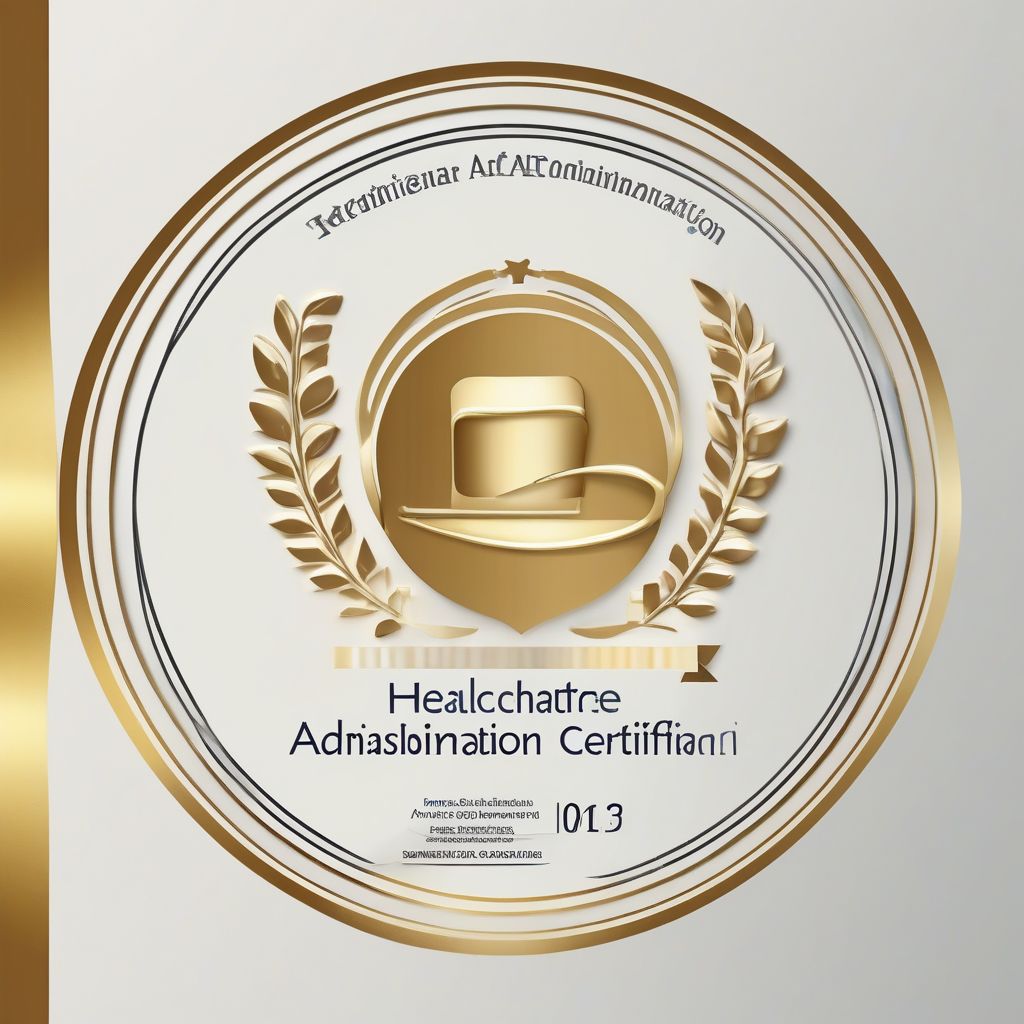
In the complex and ever-evolving world of healthcare, effective leadership is paramount. This is where healthcare administrators come in, playing a crucial role in ensuring the smooth operation of hospitals, clinics, and other healthcare organizations. But in a field demanding both expertise and credibility, how can healthcare administrators demonstrate their capabilities? The answer lies in Certifications For Healthcare Administrators.
Understanding the Importance of Healthcare Administration Certifications
A certification in healthcare administration is more than just a piece of paper; it’s a testament to your specialized knowledge and skills. It signifies to employers that you’ve met rigorous standards and possess a deep understanding of the healthcare landscape.
Why are these certifications so important?
- Enhanced Credibility: A certification immediately distinguishes you from other candidates, showcasing your commitment to professional development and excellence in healthcare administration.
- Increased Career Opportunities: Many employers prioritize or require certifications when hiring for leadership roles, opening doors to new and exciting career paths.
- Higher Earning Potential: Certified healthcare administrators often command higher salaries due to their specialized knowledge and demonstrated competency.
- Professional Growth: The process of earning and maintaining certifications encourages continuous learning and keeps you abreast of the latest industry trends and regulations.
thucphamhoangkim.com/wp-content/uploads/2024/08/healthcare administrator certification logo-66b6e8.jpg" alt="healthcare administrator certificate" width="1024" height="1024">healthcare administrator certificate
Exploring Common Healthcare Administration Certifications
Navigating the world of certifications can feel overwhelming, but we’re here to break it down. Let’s explore some of the most recognized and sought-after certifications in healthcare administration:
1. Certified Healthcare Executive (CHE): Offered by the American College of Healthcare Executives (ACHE), the CHE credential is highly respected and demonstrates a mastery of a broad range of healthcare management knowledge.
2. Fellow of the American College of Healthcare Executives (FACHE): This prestigious designation recognizes healthcare leaders who have made significant contributions to the field and demonstrated sustained excellence in leadership.
3. Certified Medical Practice Executive (CMPE): Designed for administrators working specifically in medical group practices, the CMPE, offered by the Medical Group Management Association (MGMA), focuses on the unique challenges and opportunities within this setting.
4. Nursing Home Administrator (NHA): This essential certification is mandatory for individuals wanting to lead skilled nursing facilities or assisted living communities and focuses on the specific regulations and care needs of this population.
5. Certified Assisted Living Administrator (CALA): Geared towards professionals in assisted living settings, this certification emphasizes resident-centered care, ethical leadership, and regulatory compliance.
Answering Your Questions About Healthcare Administration Certifications
What are the typical requirements for obtaining a certification?
While requirements vary depending on the specific certification, common prerequisites include:
- A bachelor’s or master’s degree in healthcare administration or a related field
- A certain number of years of professional experience in healthcare administration
- Passing a comprehensive examination
- Completing continuing education credits to maintain the certification
How do I choose the right certification for my career goals?
Consider your current role, long-term aspirations, and the specific area of healthcare administration you wish to specialize in. Researching different certifications and their respective requirements will help you make an informed decision.
Is it worth getting certified if I’m already working in healthcare administration?
Absolutely. Even with experience, a certification can significantly enhance your career prospects, earning potential, and professional credibility.
Additional Considerations for Aspiring Healthcare Administrators
- Networking: Engage in industry events and join professional organizations like ACHE and MGMA to connect with other professionals and stay informed about industry trends.
- Mentorship: Seek guidance from experienced healthcare leaders who can offer valuable insights and support your professional journey.
- Continuing Education: Commit to lifelong learning by attending conferences, pursuing advanced degrees, and staying updated on the latest healthcare regulations and best practices.
Embark on Your Path to Healthcare Leadership
Earning a certification in healthcare administration is a significant investment in your future. It’s a clear signal to employers that you possess the knowledge, skills, and dedication to excel in this dynamic field. As the healthcare industry continues to evolve, certified professionals will be at the forefront, leading with expertise and shaping the future of care.
We encourage you to explore the wealth of resources available on our site to learn more about specific certifications, career paths, and other valuable information related to healthcare and wellness.


